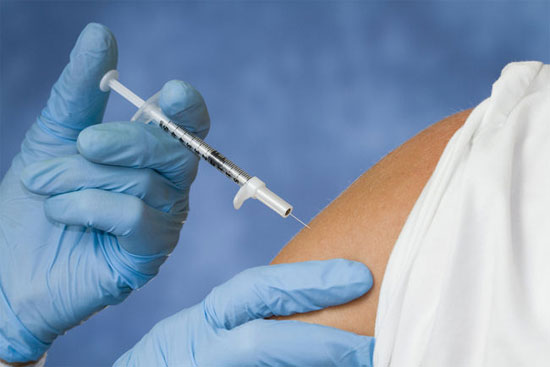Vaccination against H1N1 can cause neurological disorders
The H1N1 flu vaccine in the US may increase the risk of neurological disorders but at low rates, according to AFP on March 13.

Vaccination is an effective way to prevent H1N1 flu
Scientists in the United States look at data on side effects from getting the H1N1 flu vaccine in the H1N1 influenza vaccine program at 23 million Americans.
They recorded 77 cases of Guillain-Barre syndrome within 3 months after vaccination. Guillain-Barre syndrome is a neurological disorder that causes muscle weakness and temporary paralysis.
The study, published in The Lancet, is conducted by the Office of the National Immunization Program in Washington and according to researchers, the benefits of vaccination still outweigh the risk.
Data show that the H1N1 vaccination in 2012 prevented between 700,000 and 1.5 million cases of influenza in the US, reducing between 4,000 and 10,000 hospitalizations and 500 deaths from the disease.
- What is cardiac neurosis?
- Vaccination of H1N1 flu is safe for pregnant women
- Treatment of neurological disorders by jellyfish brain
- 1 billion people suffer from neurological disorders
- USA: Vaccination against influenza A / H1N1 is free for people
- In the whole country, 9 patients died of influenza A / H1N1
- Vaccines against influenza A / H1N1 cause mild side effects
- Artificial neurons replace nerves in the human brain
- American research: the more intelligent the person is more susceptible to ... neurological disease?
- Why is H1N1 the seasonal flu still causing many deaths?
- The second patient in the South died of H1N1 flu
- Signs of complications after vaccination should be noted
 March 2012: Launching H5N1 vaccine for poultry
March 2012: Launching H5N1 vaccine for poultry Experts comment on the mysterious gradual disappearance of the Delta variant in Japan
Experts comment on the mysterious gradual disappearance of the Delta variant in Japan Danger of the two Delta . branch variants
Danger of the two Delta . branch variants 2020 pandemic flu attack humans?
2020 pandemic flu attack humans?